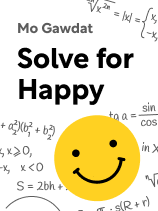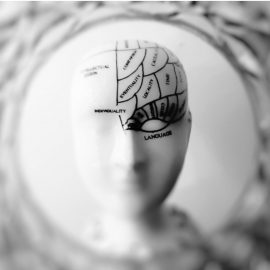

This article is an excerpt from the Shortform book guide to "Solve for Happy" by Mo Gawdat. Shortform has the world's best summaries and analyses of books you should be reading.
Like this article? Sign up for a free trial here.
How realistically do you perceive your own level of knowledge? Can you know everything you need to know when it comes to making decisions in life?
When your expectations exceed your perceptions of reality, you suffer. In Solve for Happy, Mo Gawdat helps you bring your expectations into alignment with your perceptions. One area in which your expectations might get out of whack is with your own knowledge.
Keep reading to understand how the limitations on your senses and language put limitations on your knowledge—and to learn how to find more happiness by accepting that you can’t know everything.
You Can’t Know Everything
We identify strongly with our knowledge. However, this leads to a misconception: We know it all. Instead, Gawdat argues that our knowledge is deeply limited. The more you embrace the reality that you can’t know everything, the happier you can be.
(Shortform note: Some philosophers have gone beyond Gawdat and endorsed skepticism, the view that we actually know nothing at all. Because we can’t verify our senses independently, they reason, we can’t be certain that they’re reliable in the first place. Consequently, no information gleaned from our senses can be rightly considered knowledge).
Gawdat points out that most of our knowledge is rooted in our senses. For instance, we know that it’s raining outside when we hear pitter-pattering on the roof, or see water trickling down the window. Yet, our senses are limited; our eyes can’t see colors beyond the visible spectrum, and our ears can’t hear frequencies that are too high or too low. So, we should expect the knowledge generated by our senses to reflect their limitations.
(Shortform note: While Gawdat only claims that most of our knowledge is derived from sensory experiences, empiricism states that all of our knowledge is derived from our senses. According to this view, even intuitive knowledge of mathematical facts—like 2+2=4—is grounded in sensory experience.)
Further, Gawdat points out that we use words to convey knowledge, but words are imperfect vehicles for truth. For instance, if you try to describe the ocean, it will fail to fully capture the ocean’s beauty. Yet, because we have to use words to convey our experiences, the knowledge we convey is incomplete.
(Shortform note: Philosopher Ludwig Wittgenstein went beyond Gawdat’s claims that words are merely imperfect vehicles of truth; instead, he argued that words don’t reflect objective truth whatsoever. On the contrary, he claimed that the “correct” usage of language is simply a matter of using words according to our conventions. In other words, “true” sentences are just sentences that follow the linguistic rules that we construct—regardless of whether they accurately reflect reality.)
Since we actually know relatively little, the misconception of knowledge distorts our expectations and makes us unhappy. For instance, we might “know” that it’ll be sunny at the beach tomorrow, yielding disappointment when it ultimately rains. So, by recognizing the limits of our knowledge, we set more accurate expectations and better satisfy the happiness formula.

———End of Preview———
Like what you just read? Read the rest of the world's best book summary and analysis of Mo Gawdat's "Solve for Happy" at Shortform.
Here's what you'll find in our full Solve for Happy summary:
- The six misconceptions that cause us to suffer
- How to remove the seven weaknesses that hinder your happiness
- The five pillars to becoming permanently happy






